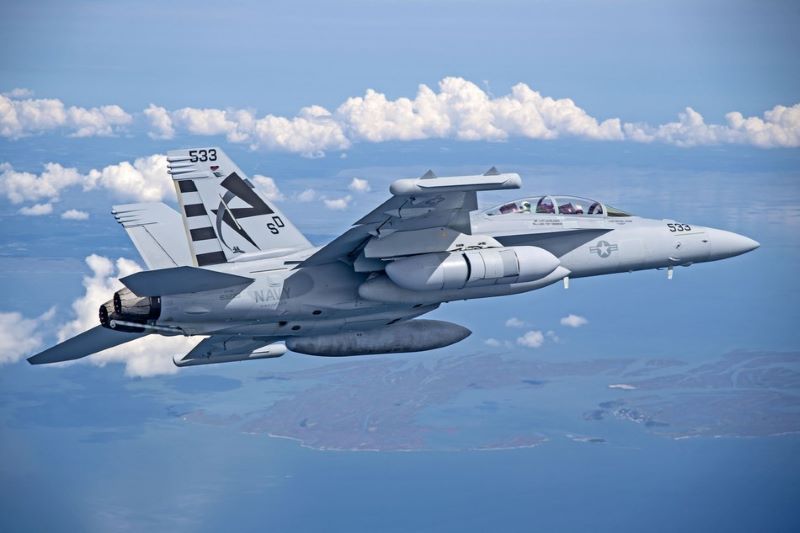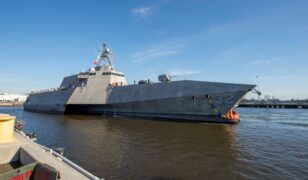Raytheon’s Next Generation Jammer Mid-Band undergoes flight test

Built by Raytheon Intelligence & Space, a Raytheon Technologies business, the Next Generation Jammer Mid-Band flew on an EA-18G Growler – its first flight test on the aircraft. The U.S. Navy’s NGJ-MB is an advanced electronic attack system that denies, disrupts and degrades enemy technology, including communication tools and air-defense systems, Raytheon announced August 24.
The Next Generation Jammer Mid-Band is an advanced electronic attack system that denies, disrupts and degrades enemy technology, including communication tools and air-defense systems.
“After hundreds of hours of successful ground and chamber testing, NGJ-MB’s first Growler flight test marked a significant achievement for the program toward Milestone C and IOC,” said Annabel Flores, vice president of Electronic Warfare Systems for RI&S. “It’s a testament to the technology and the collaborative efforts of the RI&S team with the Navy’s engineering, integration and test teams.”
The first flight took place August 7, 2020, at the Naval Air Station Patuxent River, Maryland, meeting all objectives. Future mission systems flight testing will demonstrate weapons system control, power generation, and electromagnetic compatibility between jammer and aircraft, as well as the performance of NGJ-MB’s high-capacity digital waveform generation and active electronically scanned arrays in flight against a variety of targets. Data from these flight tests on the Growler will inform Milestone C – the Navy’s decision to start NGJ-MB production.
The flight follows more than 600 hours of ground testing of Engineering Development Model, or EDM, pods. At the Naval Air Stations Patuxent River and at Point Mugu, California, EDM pods underwent anechoic chamber testing – a special facility designed to absorb electromagnetic waves – to measure the jammer’s radio frequency power and beam-steering capabilities.
In addition to mission systems testing, the program is expected to begin aeromechanical flight testing shortly to assess aircraft flying qualities and performance, following previously completed ground vibration, static load, and wind tunnel testing. These tests will also evaluate the effects of the air flow environment on the pod, as well as noise and vibration behavior.






